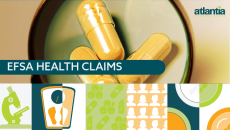Polyphenolic extract may regulate appetite in overweight and obese, study concludes

The feelings of hunger and satiety are triggered in the hypothalamus via neurotransmitters and hormone receptors. These include those that stimulate appetite, such as ghrelin, and those that inhibit it, such as insulin, leptin, adiponectine, peptide YY and GLP-1.
Scientific literature has previously shown that certain plant-derived extracts such a Hibiscus sabdariffa (aka Roselle) and Lippia citriodora (aka Lemon Verbena) extracts can modulate different metabolic pathways and activate the AMPK (activated protein kinase) pathway which favours the metabolic process of lipolysis, which mobilises stored energy during fasting or exercise and therefore leads to fat loss.
AMPK has also been shown to cause the inactivation of acetyl-CoA carboxylase, 3-hydroxy-3-methylglutaryl (HMG)-CoA reductase, the key regulatory enzymes of cholesterol and fatty acid synthesis.
The authors of the current study, from San Antonio Catholic University of Murcia, Spain, concluded that previous literature shows polyphenolic extracts can modulate the activity of AMPK and, thereby, normalise the levels of leptin that are usually elevated in people who are overweight or obese.
The team therefore hypothesised that chronic consumption of this polyphenolic extract composed of Lippia citriodora and Hibiscus sabdariffa (Lc-Hs) could have effects on appetite regulation in overweight and obese people.
The Study
To test their hypothesis they conducted a cross-over, placebo-controlled (Pla) clinical intervention involving 33 overweight and obese participants (17 males and 16 females), divided into two 60-day periods separated by a 30-day wash-out period. In the first phase, subjects consumed the Lc-Hs (500 mg/day, MetabolAid, Monteleloeder S.L., Spain) or a placebo, and after the wash-out period the treatments were crossed.
Appetite sensation was determined by visual analogue scales at different times and blood extraction was performed to determine biochemical parameters (lipid and glucidic profile and safety parameters) and to evaluate hunger-related hormones (insulin, leptin, ghrelin, adiponectin, GLP-1 and peptide YY). Visual analog scales (VAS) were used to evaluate Appetite Score (AS). Satiety evaluation was carried out using the formula of satiety quotient (SQ, an additional aid to the determination of the satiating capacity of food).
The authors found that the consumption of the polyphenolic extract for 60 days in overweight subjects led to a significant decrease on appetite sensation and body composition, with a marked reduction of calorie intake during an ad-libitum meal, also improving lipidemic profile.
GPL-1 increased in the Lc-Hs treatment group, improving fullness and satiety and leading to an "excellent" SQ result. The authors say GLP-1 seems to be mayor factor controlling satiety and desire to eat.
There was also a decreased concentration of Leptin after Lc-Hs treatment . Leptin is mainly synthesised in adipose tissue and is able to inhibit food intake, being the most important hormone for long-term maintenance of body weight. However, obese population may present leptin resistance, mainly due to lipid-related inflammation. Therefore the authors suggest the decrease in leptin levels can be explained by the loss of fat mass observed in patients treated with Lc-Hs.
Lc-Hs treatment was able to achieve a stable decrease in ghrelin over the 240 minutes of plasmatic assessment. Explaining this, the authors note that subjects treated with Lc-Hs reduced their caloric consumption and the reduction in the volume of food consumed would lead to a minor reduction on plasmatic ghrelin (greater plasmatic concentration).
The authors conclude that the increased satiety observed could be attributed to the changes observed in leptin, ghrelin and GLP-1. However, they note that the study was focused on satiety sensation, not on hormone regulation.
They therefore suggest it would be interesting to develop future research with more appropriate methodology and focused on the variation of the hormones themselves as main research parameter.
Source: Eur J Nutr
DOI: 10.1007/s00394-021-02678-x
"Effectiveness of a polyphenolic extract (Lippia citriodora and Hibiscus sabdariffa) on appetite regulation in overweight and obese grade I population: an 8 week randomized, double blind, cross over, placebo controlled trial"
Authors: Serna et al.
















